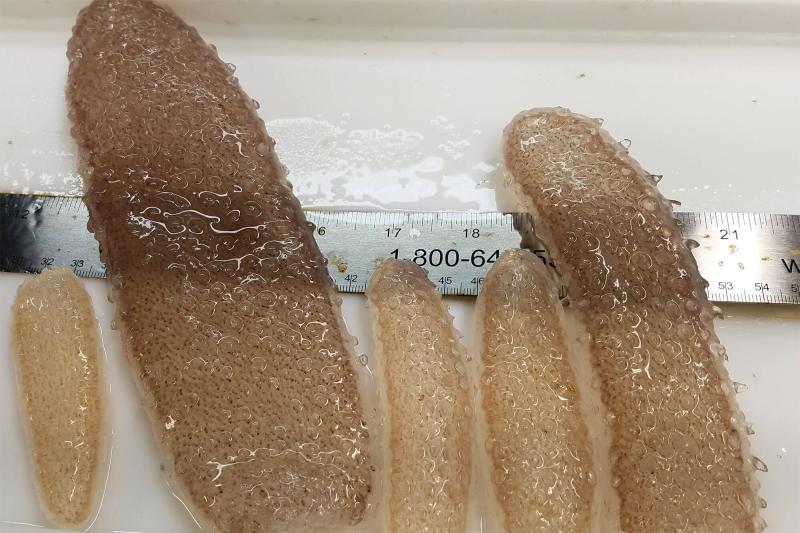Just what are the blob-like creatures washing up on west coast shores?
This bizarre sea creature could have negative effects on animals on the marine food web, scientists say
Your support helps us to tell the story
From reproductive rights to climate change to Big Tech, The Independent is on the ground when the story is developing. Whether it's investigating the financials of Elon Musk's pro-Trump PAC or producing our latest documentary, 'The A Word', which shines a light on the American women fighting for reproductive rights, we know how important it is to parse out the facts from the messaging.
At such a critical moment in US history, we need reporters on the ground. Your donation allows us to keep sending journalists to speak to both sides of the story.
The Independent is trusted by Americans across the entire political spectrum. And unlike many other quality news outlets, we choose not to lock Americans out of our reporting and analysis with paywalls. We believe quality journalism should be available to everyone, paid for by those who can afford it.
Your support makes all the difference.An influx of unusual blob-like sea creatures that resemble something of a translucent pickle have been washing up in their thousands on west coast beaches in recent years, since heatwaves increased their numbers.
While these amorphous specimens look like they could have come from outer space, they actually reside in our oceans and could be having negative effects on the marine food web, especially on predators at the top.
Pyrosomes, a common species found in the northeast Pacific, are actually colonies of tiny animals called zooids that are tightly packed together.
These tough, slimy creatures with small bumps feed on small planktonic microorganisms, which they capture using a ‘mucus net’.
Pyrosomes are known to cluster together in large numbers, and the zooids’ bioluminescence creates magnificent light displays underwater.
But why is the unassuming slimy tube becoming a topic of concern for scientists? Can these gelatinous-looking creatures really pose a threat to the ocean’s ecosystem?
Researchers at the National Oceanic and Atmospheric Administration (NOAA) Fisheries have released a new report detailing how heatwaves are becoming more severe and frequent in our oceans, meaning that the ecosystems are being heavily impacted.
In partnership with Oregon State University, NOAA Fisheries examined the food web of the Northern California Current to examine the consequences of the heatwaves.
Ever since 2013, this current has experienced warm water periods and several marine heatwaves, which have had devastating effects on fisheries, while scientists have also reported mass mortality events.

However, these heatwaves may have benefitted Pyrosomes as they have skyrocketed in number.
They had not been detected in 25 years of various NOAA surveys until the onset of a heatwave in 2014, Dylan Gomes, a co-author of the report, told The Seattle Times.
“They went from being zero – completely absent as far as anybody knows – to being one of the most abundant things in the entire ecosystem,” Mr Gomes said.
As for their fellow gelatinous species, however, such as jellies and fish, they haven’t been so lucky, decreasing in number.
NOAA said that marine heatwaves have potentially adverse implications for creatures at the top of the food web, which includes commercial fisheries and endangered salmon.
The reason behind this is that the increase of ‘gelatinous zooplankton species’, such as the pyrosomes, made them the dominant consumer of creatures at the bottom of the food web.
“Pyrosomes consume animals at the base of the food web and lock up that energy,” Lisa Crozier, a research scientist at NOAA Fisheries and co-author of the report, explained. “They’re taking energy out of the system that predators need.”
Predators such as salmon and sea lions don’t appear to eat pyrosomes, which have long been considered as “trophic dead ends” due to their low energy content, but the gelatinous prey may be more important than was once thought, the report said.
“That has an impact on the entire ecosystem … the pyrosome is consuming energy that normally would have gone through multiple prey to eventually end up in a salmon,” Mr Gomes added.
Scientists now say that further understanding of these changing dynamics will be essential for adapting fisheries and protecting underwater biodiversity as the planet continues to warm.

Join our commenting forum
Join thought-provoking conversations, follow other Independent readers and see their replies
Comments